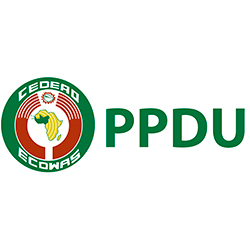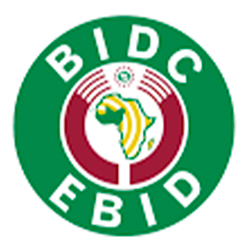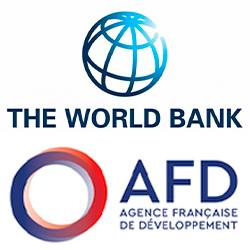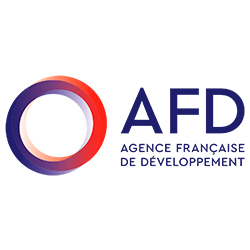
West Africa Clean Energy
Corridors (WACEC) Program

With a population of over 400 million inhabitants and a growing economy, energy demand in West Africa is increasing at a rapid pace. The current installed capacity in the region covers less than 40 % of the demand and only 42 % of the population has access to electricity, while grid reliability issues restrain the industrial development of the region and affect productive activities. Moreover, the sense of important risks associated to the power sector makes it hard for the region to attract sufficient investments to develop the much-needed infrastructure.
On the other hand, the region has an important renewable energy potential and the costs of both wind and solar electricity generation have been decreasing rapidly over the past decade. This renewable energy potential is therefore considered a major opportunity which could supply the much-needed power demand while supporting a transition to a low carbon economy.
In 2013, the ECOWAS Authority of Heads of State and Governments adopted the ECOWAS Renewable Energy Policy (EREP). Its aim is to increase the renewable energy share in the regional electricity mix to reach 10% of the peak load in 2020 and 19% in 2030, excluding large hydro. Including medium and large hydro, the installed capacity would reach 35% and 48% in 2020 and 2030 respectively. Around 25% of the rural ECOWAS population is expected to be served by renewable mini-grids and stand-alone systems by 2030.

The West African Clean Energy Corridor (WACEC) Program, launched by the ECOWAS Centre for Renewable Energy and Energy Efficiency (ECREEE), seeks to bolster the development of utility scale renewable energy power and its integration in West African power systems.
The program builds on ongoing efforts by national and regional partners and is structured around the following implementation pillars:
- the identification of ecologically acceptable areas with high potential for renewable energy sources and the cost-effective installation of power plants;
- national and regional planning for integration of cost-effective renewable energy generation options into national and regional electricity generation and transmission master plans;
- strengthening of political, regulatory, and institutional frameworks conducive to the promotion of investments in renewable energies;
- building capacity to plan, maintain, and manage electricity systems with large shares of electricity from renewable sources;
- fostering public and political support for the initiative and raising awareness of its benefits.

Based on the sectoral overview and the solutions adapted to renewable projects in West Africa, 14 priority actions are identified to be implemented at regional level to facilitate the development of these projects and their integration into the energy landscape of West Africa:
1. Enforcement of the policy and regulatory framework
A first set of actions concerns the strengthening of the policy and regulatory framework. The actions are as follows:
- Updating the ECOWAS Renewable Energy Policy
- Updating the regional grid code
- Opening the Market to Eligible Customers
- Establishment of the independence for the System Operator Function
- Standardization of contractual documents
- Extension of ERERA’s mandate
- Improving Legal Regulation for Communal Project Development
- Aligning donor programs and coordination between regional planning and national initiatives
- Establishing minimum Renewable Energy Consumption Quotas
2. Set up instruments and support mechanisms to facilitate investments.
Another set of actions concerns the establishment of instruments facilitating investments and support mechanisms. The actions are as follows:
- Catalogue of guarantees and insurances provided by States and IFIs
- Strengthening of FODETE-ECOWAS and other financial instruments
- Tax and custom incentives for Communal projects
3. Capacity building, improvement of technical tools and provision of information
- Systematic updates of the ECOWREX database
- Integrated capacity-building program
The activities already completed, ongoing, and under preparation are as follows:
Completed
- Update of the ECOWAS Renewable Energy Policy
- Update of the Regional Grid Code
- Development of Standardized contractual documents
Ongoing
- Development of a catalogue of guarantees and insurances provided by States and IFIs
- Systematic updates of the ECOWREX database
- Implementation of the integrated capacity-building program

–
Related News
Regional Training of Trainers on Legal and Regulatory Aspects of Solar and Energy Storage Projects
Praia, Cabo Verde, 1 November 2024 – The ECOWAS Centre for Renewable Energy and Energy Efficiency (ECREEE) and the African...
The GiZ/ProCEM Program Coordinator pays a working visit to ECREEE
Praia, August 28, 2024 – Mr. Assani DAHOUENON, Program Coordinator of GIZ-ProCEM “Promotion of a Climate-Friendly Electricity Market in the...
WACEC Regional Validation Workshop
Banjul, Gambia, 13 June – The ECOWAS Centre for Renewable Energy and Energy Efficiency (ECREEE), in partnership with the ECOWAS...
ECREEE Clocks Twelve with Excellent Improvements in the Sustainable Energy Sector
ECREEE – Praia, – 6th July 2022 – ECOWAS Centre for Renewal Energy and Energy Efficiency (ECREEE) celebrates twelve years of excellent...
ECREEE Energy Efficiency Policy Dialogue: Stakeholders Discusses Improved Energy Efficiency &Resource Efficient Cleaner Production
Lagos, Nigeria 3rd March 2022 – The ECOWAS Centre for Renewable Energy and Energy Efficiency ECREEE in collaboration with UNIDO...













